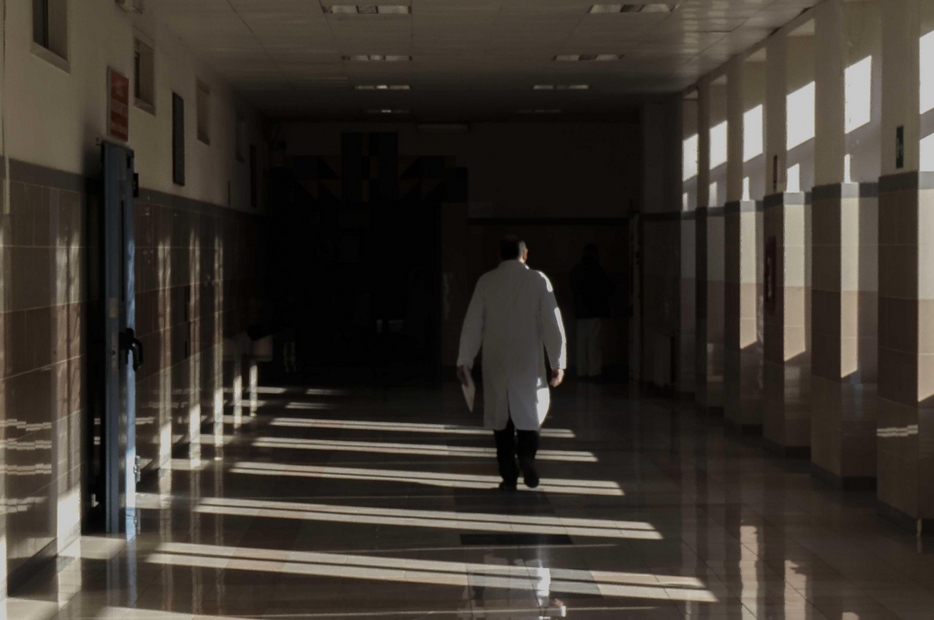A doctor in the ward – Ansa Archive
–
For the first time in Italy, assisted suicide is authorized: it happens for a quadriplegic patient from the Marches who had asked for it by initiating a legal action against the regional health authority for the delay in responding to his request to kill himself with the help of doctors. The patient in question – he was called “Mario” – after ten years of immobility following a road accident, through the radical association Luca Coscioni had formalized an appeal to the Court of Ancona. The health authority had bound its decision to the ruling of Regional ethics committee, however, denying that it did not give rise to the steps required by law, including the examination of the patient’s clinical condition.
After two rulings by the Ancona judges and as many legal warnings to Asur Marche, the opinion of the Ethics Committee of Asur Marche which, following the verification of the conditions, which took place with a group of medical specialists appointed by the same company, confirmed that Mario possesses the requisites for legal access to assisted suicide provided for by the Fabo-Cappato sentence issued by the Constitutional Court in 2019 but still waiting to be translated into State law.
The patient, through the Coscioni association, commented that he felt “lighter: I emptied myself of all the tension accumulated over the years”.
In recent months, exponents of the Marche ecclesial community had expressed solidarity and sharing for the living conditions and suffering of Mario, but also the awareness that life is and remains an unavailable value, always and in any case, invoking that the institutions, instead of giving death to a patient, do everything possible to alleviate the suffering of patients in conditions similar to those of Mario.
The opinion of the Ethics Committee
But the reading of the two opinion files of the Asur Marche Ethics Committee opens up more questions than the radical promoters of the “right to die” can clarify. Having acknowledged that the patient is not willing to undergo an integrative painkiller therapy, the body said that it was unable to provide an evaluation on the modality, method and drug to be used on the patient by formulating five questions.
In particular, the Committee notes that the choice of the dosage of 20 grams of the chosen drug is not justified, that the modality of a premedication to reduce anxiety and sedate the patient is not specified, nor of anesthesia. The Committee also declares itself incompetent to provide an alternative to the indicated drug.
Not only that: examining one by one the criteria dictated by the Constitutional Court for the decriminalization of assistance in suicide in exceptional cases (among these, the fact that the patient’s life depends on life-sustaining treatments, such as “assisted ventilation, or the ‘hydration and artificial feeding “in the very words of the opinion), the Committee notes that” Mario “is not attached to” machinery “.
And therefore his case is outside the perimeter of what the Court has dictated with extreme precision. Finally, the same Ethics Committee recognizes that in this specific case the “physical and psychological suffering deemed unbearable” is an element that is “difficult to detect”. Finally, a very important element in every story of this drama: the patient in fact “did not accept the therapeutic proposals for integrating the therapy with painkillers or with further home help”. In other, and tragic, words, his is one the will to take his own life, which requires not a community that helps him die but that supports him and does not abandon him to despair.
As the Livatino Study Center commenting on the story, “there remains the bewilderment of the perception of a common effort aimed at taking the life of a severely disabled person: whose psychological suffering deserves help and support, not the identification of the most suitable substance to kill him”.
In essence, reading the opinion of the Ethics Committee does not authorize it to be considered a green light for assisted suicide or the recognition of a right. Now, therefore, the word passes to other authorities evoked by the Committee, as explained by the councilor for Health of the Marche Region Filippo Saltamartini: “The court of Ancona will decide whether the 43-year-old quadriplegic patient may have the right to medically assisted suicide: the Ethics Committee for its part has raised doubts about the methods and methods of the drug that the subject would have requested, the sodium Thiopentone in the quantity of 20 grams, without specifying how it should be administered ».
The Office for the Pastoral Care of Health of the CEI
“When a person chooses to end his life, attitudes of profound respect are imposed on those who experience suffering such as to decide to stop living. The suffering of people must always be considered and if it leads to such an extreme choice it means that it is very high” , he claims Don Massimo Angelelli, director of the National Office for the Pastoral Care of Health of the CEI.
“Another attitude required is fraternal closeness to those who suffer in this way, so that they do not feel alone. The Christian community prays and accompanies every suffering person”.
“At the same time – continues the director of the CEI Office – every action that goes against life itself, even if freely chosen, cannot be shared. Life is a good received, which must be protected and defended, in all its conditions. No one can be called to be the bearer of the death of others. Human conscience prevents us from doing this. The civil community, also through its public choices, is called to ensure the conditions so that every sufferer is relieved of pain, also through palliative programs, and to guarantee the necessary care for the sick who are at the end of their life “.
The Pontifical Academy for Life
“The matter of end-of-life decisions constitutes a delicate and controversial terrain”, affirms in a note the Pontifical Academy for Life commenting on the green light for assisted suicide obtained by “Mario”, with the opinion of the “Territorially competent ethics committee” . “The most convincing way seems to us to be that of an accompaniment that takes on the set of multiple personal needs in these very difficult circumstances. It is the logic of palliative care, which also contemplate the possibility of suspending all treatments that are considered disproportionate by the patient, in the relationship that is established with the treating team “.
“As we do not have precise medical information on the clinical situation, it is necessary to limit ourselves to some general relief”, notes the Pontifical Academy for Life in a note. “First of all – he observes – the suffering caused by such an incapacitating pathology as tetraplegia, which has been going on for a long time, is certainly understandable: we cannot in any way minimize the seriousness of what ‘Mario’ experienced”.
“However, the question remains – he continues – whether the most adequate answer in the face of such a provocation is to encourage people to take their own life. The ‘principle’ legitimation of assisted suicide, or even of consenting murder, does not raise any question and contradiction. to a civil community that considers the failure to provide assistance as a serious crime, even in presumably the most desperate cases, and is ready to fight against the death penalty, even in the face of repugnant crimes? “.
“Painfully confessing one’s exceptional inability to heal and recognizing oneself the normal power to suppress, do not deserve more worthy languages to indicate the seriousness of our oath to take care of our vulnerable, suffering, desperate humanity? – asks the Vatican bioethical body – Is all we manage to express is the request to make the gesture of our mutual suppression normal? “.
“In other words, the question arises – at least the question, if only in order not to lose the love and honor of the oath that is at the top of all care practices – if there are other ways to travel for a community that makes itself responsible for the life of all its members, thus fostering the perception in each one that their own life is meaningful and has a value also for others “, he explains.
According to the Pontifical Academy for Life, “the story also raises a question about the role of Territorial ethics committees. It cannot be excluded that the difficulty of the answer was also determined by the difficulty of clarifying the role to play “. In fact” the diction used is not the usual one (so far we have talked about Clinical Trials Committees of Clinical Ethics Committees ) “. Moreover,” in the Sentence of the Constitutional Court n. 242/2019 a task is required that does not correspond to what is foreseen for both types known so far: it is a question of making a binding judgment of compliance of the particular clinical situation with the four conditions established by the Constitutional Court ruling “.
“A task – concludes the Vatican structure – that is, that could more adequately be carried out by a technical committee (medico-legal) that verifies the existence of the prescribed conditions. An ethics committee could be more correctly involved in a consultation prior to the decision of the patient”.
Associations for life
The Marche Ethics Committee “believes that the requisites exist from the point of view of a strictly ethical evaluation and health practices, but reveals that it has received a request for an opinion also regarding the methods of administering the lethal drug, specifying, however, that it does not have received sufficient elements to express an ethical judgment on the indicated procedure. Ultimately, the opinion is formally incomplete and therefore not positive “. This was stated by the national president of Science & Life Alberto Gambino, who also wonders if “the health service will have to take charge of assisting the patient in self-administering the poison”. It is “a very delicate issue that will eventually require a law that can prevent inert suicidal acts of self-taking of lethal drugs in health structures”. “The Ethics Committee has not authorized any assisted suicide” echoes the Livatino Study Center, which expresses “bewilderment” at the “perception of a common effort aimed at taking the life of a severely disabled person: whose psychological suffering deserves help and coaching, not identifying the most suitable substance to kill him “. “Legalizing assisted suicide, relying on the most dramatic cases, means opening a highway on the availability of human life”, said Massimo Gandolfini, neurosurgeon and leader of the Family Day, speaking of “mania” which “corresponds to the nefarious policies of cuts to health and public assistance that has devastated our welfare systems. There is no compassion in giving death, those who suffer must be accompanied and cared for ».
–


